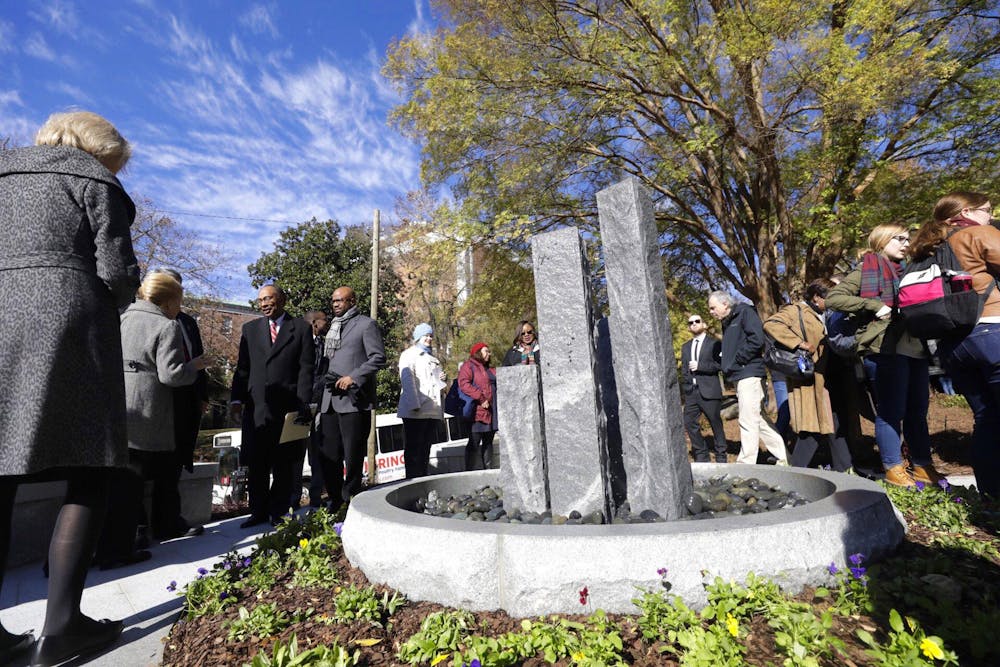This Black History Month, students, faculty and guests gathered to learn about the esteemed life and legacy of Judia Jackson Harris, a Black educator, community organizer and activist. Assistant Professor of Anthropology Jessica Ham collaborated with Oxford Studies to organize the Feb. 17 event, which featured University of Georgia School of Social Work Director of Global Engagement Jane McPherson.
During her research, McPherson discovered former DeKalb County CEO Michael Thurmond’s novel, “A Story Untold: Black Men and Women in Athens History.” Through the novel, McPherson learned about Harris and her contributions to education in Georgia. When Jim Crow laws still existed in the South, Harris founded the Model and Training School to educate the families of Black sharecroppers in rural Georgia.
Struck by the inclusion of a woman in education, a field that men primarily dominated at the time, McPherson decided to begin doing her own research on Harris. She scanned old university records and photographs while tracking down relatives who were also activists to piece together a complete picture of Harris.
“Her message remains really powerful,” McPherson said. “She had an idea that the ideal community in which Black Americans were to prosper should be a Black community that was connected through bonds of friendship and economic cooperation with white communities.”
Saachi Bedi (25Ox) emphasized the importance of Harris’ contributions and expressed interest in McPherson’s work in restoring Black histories in Georgia.
“It’s a wonderful story of equality and education for everyone, especially now, when that is being challenged,” Bedi said.
Shir Ivanier (26Ox) said that she appreciated learning about not just Harris but also Harris’ family members.
“I really enjoyed learning the little tidbits about her sisters, who also turned out to be professors and educators and scholars —– even though their stories aren’t typically told,” Ivanier said.
McPherson reflected on her role as a white woman sharing these stories about Harris, adding that it can be difficult to study Black history when most universities are historically white.
“Because I work particularly in this area, I think about my own race a lot and what it means that I am telling her story and how that might be perceived,” McPherson said. “She’s the owner of her story … but I hope that I can be someone who helps bring that story to people who really deserve to hear it.”
In addition to honoring Harris, McPherson discussed the lasting impacts of racism and slavery at her own institution. While McPherson was working at the University of Georgia, workers who were renovating a building “unearthed” 105 bodies that were likely formerly enslaved individuals.
“The university asserted that these were white skeletons, and the community asserted, ‘No actually, these are members of the Black community,’” McPherson said. “These are enslaved and formerly enslaved people. And, DNA was done, and indeed, the community was correct, but there was much back and forth, and the university eventually refused to let those bodies be buried in historically Black cemeteries.”
Despite community objections, the University chose to rebury the remains in a historically white cemetery, and many locals stated they were buried at “the feet of their former masters,” according to McPherson. This led McPherson to explore the city of Athens, Ga., eventually uncovering its ties to not only slavery but also child labor, which she said existed well into the ’30s in Georgia.
McPherson urged students to continue exploring these hidden histories, adding that Harris’ story is one of optimism.
“There’s so many interesting stories that haven’t been told, but also powerful stories that help us understand our world and reshape our understanding in ways that I think are extremely important, politically and culturally, and have potential to empower young people,” McPherson said.






